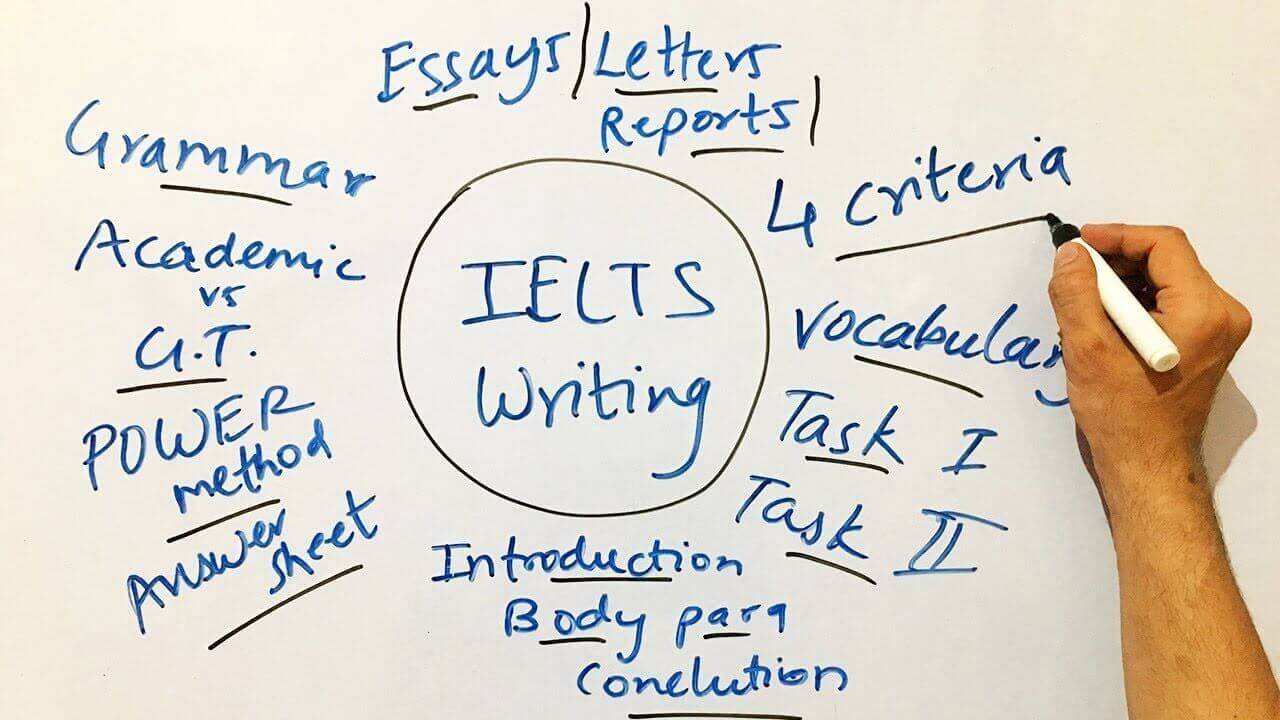Mastering topic sentences
Mastering topic sentences Have you ever been to a new country where you couldn’t understand the road signs? Perhaps you were somewhere remote with...
Flexible group courses for everyday communication and fluency.
Academic EnglishPrepare for university study with advanced academic language skills.
Business EnglishEnglish for professional communication in corporate and workplace settings.
Private LessonsOne-to-one lessons tailored to your goals, schedule and interests.
Language ExcursionsLearn English while exploring Cape Town with your teacher as your guide.
Get the score you need with targeted strategies and expert support.
Cambridge ExamsPrepare for the FCE or CAE with structured, high-quality training.
TOEFL PreparationBuild confidence and test skills to succeed in the TOEFL exam.
Personalised one-to-one English lessons delivered online, on your schedule.
Corporate GroupsLive online training for teams, customised to your organisation’s needs.
English for Tech ProfessionalsSelf-paced English course designed for developers, engineers, and IT teams.
Qualify to teach English in South Africa or abroad with this practical course.
Blended Certificate in TEFLCombine online study with hands-on classroom experience in Cape Town.
Learn in a historic university campus right in the city centre.
Tours and ActivitiesExplore Cape Town and make friends through weekly excursions.
Social ProgrammeJoin our schedule of fun events, outings and conversations.
Getting AroundTips and tools for navigating the city like a local.
Social and DigitalStay connected online and through our vibrant student community.
A friendly, sociable student house just a short walk from school.
Adderley StudiosModern, secure apartments in the heart of Cape Town.
HomestayLive with a local family and experience South African culture.
Hotels & AparthotelsIndependent options for comfort, privacy and flexibility.
All tuition and accommodation fees in one clear table.
Booking InformationWhat to expect before, during and after you book.
Instalment PlansFlexible payment options for long-term bookings.
User LoginView your bookings, make payments, and manage your details.
Visa options and support for international students coming to South Africa.
Insurance & TravelWhat you need to know about travel, insurance and staying safe.
MyELC AppAccess your timetable, progress and more on the student app.
Arrival and OrientationHow we help you settle in on your first day in Cape Town.
How to request certificates, transcripts, or proof of enrolment.
Terms & ConditionsThe small print — bookings, cancellations, and more.
Contact UsGet in touch with the ELC team by email, phone or WhatsApp.
Privacy PolicyHow we protect your data and respect your privacy.
What makes ELC and UCT a great place to learn English.
About the University of Cape TownSouth Africa’s leading university and home to the ELC.
About the English Language CentreWho we are, what we offer, and how we teach.
Our TeamMeet the teachers, support staff and leadership team behind ELC.
Our international quality standards and endorsements.
Media & PressNews coverage, interviews and media mentions of ELC.
TestimonialsWhat our students, partners and teachers say about us.
BlogUpdates, stories and insights from the ELC community.
Flexible group courses for everyday communication and fluency.
Prepare for university study with advanced academic language skills.
English for professional communication in corporate and workplace settings.
One-to-one lessons tailored to your goals, schedule and interests.
Learn English while exploring Cape Town with your teacher as your guide.
Get the score you need with targeted strategies and expert support.
Prepare for the FCE or CAE with structured, high-quality training.
Build confidence and test skills to succeed in the TOEFL exam.
Personalised one-to-one English lessons delivered online, on your schedule.
Live online training for teams, customised to your organisation’s needs.
English for Tech Professionals
Self-paced English course designed for developers, engineers, and IT teams.
Qualify to teach English in South Africa or abroad with this practical course.
Combine online study with hands-on classroom experience in Cape Town.
Learn in a historic university campus right in the city centre.
Explore Cape Town and make friends through weekly excursions.
Join our schedule of fun events, outings and conversations.
Tips and tools for navigating the city like a local.
Stay connected online and through our vibrant student community.
A friendly, sociable student house just a short walk from school.
Modern, secure apartments in the heart of Cape Town.
Live with a local family and experience South African culture.
Independent options for comfort, privacy and flexibility.
Use our Course Wizard to match your goals and level to the best option
Course WizardAll tuition and accommodation fees in one clear table.
What to expect before, during and after you book.
Flexible payment options for long-term bookings.
View your bookings, make payments, and manage your details.
Visa options and support for international students coming to South Africa.
What you need to know about travel, insurance and staying safe.
Access your timetable, progress and more on the student app.
How we help you settle in on your first day in Cape Town.
How to request certificates, transcripts, or proof of enrolment.
The small print — bookings, cancellations, and more.
Get in touch with the ELC team by email, phone or WhatsApp.
How we protect your data and respect your privacy.
What makes ELC and UCT a great place to learn English.
About the University of Cape Town
South Africa’s leading university and home to the ELC.
About the English Language Centre
Who we are, what we offer, and how we teach.
Meet the teachers, support staff and leadership team behind ELC.
Our international quality standards and endorsements.
News coverage, interviews and media mentions of ELC.
What our students, partners and teachers say about us.
Updates, stories and insights from the ELC community.

I always tell students that the best essay I have ever read was written by a Pre-Intermediate student. ‘How is that possible?’ they say. Well, in his introduction, he told me exactly what his essay was about, what I could expect to read, and how he planned to order his points. In the main body paragraphs, he clearly outlined the topic of each paragraph in the first sentence. He then took a point and explained it fully, making it easy to follow his thoughts. Finally, he reminded me what he had written about and linked the conclusion back to the introduction. In other words, he went full circle. For me, it was a piece of art.
Your reader is the most important consideration when writing an essay. I find that students often know what they want to write but they don’t think about who they are writing for.
You need to take your reader on a journey with clear directions. Think about giving a friend the directions to your house. If you jumbled these directions, your friend would never find you. You need to lead the reader through your mind. (Ok, that’s a little weird, but you get the idea!)
A paragraph is a group of sentences that relate to one idea. This idea is usually expressed in the first sentence of the paragraph. Every single sentence after needs to support and link to that one idea. To put it another way, each of the following sentences must give examples, extra information, definitions, reasons, results, clarification and explanation related to the one idea. If you have a new idea, save it for a new paragraph. All the sentences after the topic sentence are called supporting evidence, and they elaborate on the one idea.
What a beautiful paragraph, if I may say so myself!
You will see that there are words which act as signposts for the reader.
‘For example,’ is an obvious one. This tells the reader that they can expect an example. Other signposts, also called ‘linking words‘, such as ‘because’ (gives a reason), ‘to put it another way’ (clarification or explanation), in addition (adds a point), in contrast/however/on the other hand (gives the opposite view) tell the reader what to expect. You can study these, but don’t overdo it. The logical link between two sentences is more important.
Here is an example paragraph about the features of a cohesive piece of writing.
“Cohesion is an important part of academic writing. It helps ensure that writing ‘sticks together’. In other words, cohesion makes it easier for the reader to follow the main ideas in an essay. You can achieve good cohesion by paying attention to three important features. The first of these is repeated words. The second key feature is reference words which refer to previous sentences. The final important aspect is signposts. These features are the glue that sticks your paragraph together.“
To conclude, make it easy for your reader by telling them what the whole paragraph is about in the topic sentence. Go on to support the one idea in the following sentences. Finally, give a summary sentence.
We hope that this will help in your academic writing!
—
By Christelle van Niekerk
Check our other blogs about improving structure in writing, Stronger Topic Sentences and Mastering Topic Sentences.

Mastering topic sentences Have you ever been to a new country where you couldn’t understand the road signs? Perhaps you were somewhere remote with...

Intro to the IELTS Writing Paper Like the rest of the exam, the IELTS academic writing paper takes some the skills and competencies required for...

How to Write an Opinion Based Essay The UCT English Language Centre runs a Cambridge Advanced Certificate (CAE) exam preparation course. In the CAE...